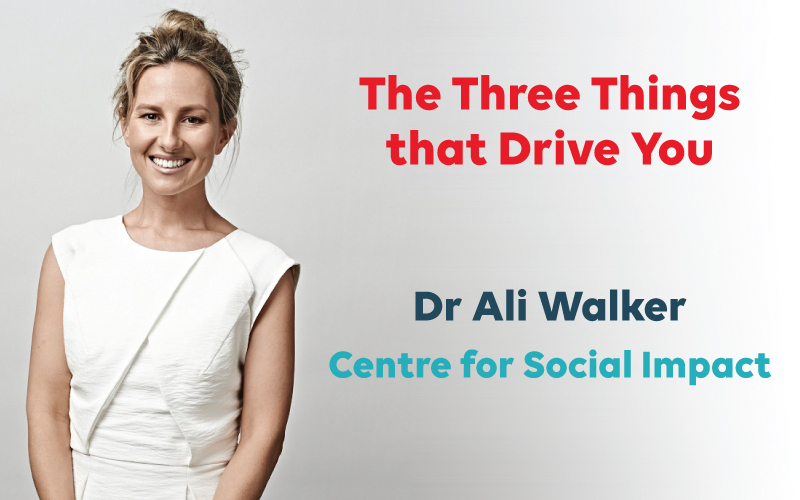
The Three Things that Drive You
Dr. Ali Walker is a lecturer and researcher in leadership at the Centre for Social Impact (UNSW, Sydney). Ali will offer her insights on mindset and leadership at AgileAus19. She’ll also be hosting a workshop, “How to read and lead the room”, in Sydney on 24 June. More info here »
There are three forces that drive every person’s life, regardless of our age, sex, race, and occupation. According to psychiatrist and psychologist Carl Jung, our lives are controlled by three forces:
- Individuation: our desire for self-discovery;
- Synchronicity: fate or external timing (things that are ‘meant to be’); and
- Homeostasis: our mind and body’s endless quest for balance.
1. Individuation
(Scanning for Self-Discovery)
Individuation is the full realisation and wholeness of the Self: the discovery of who we fundamentally are. We are always scanning our environments to discover people, experiences and objects that are a match with our deepest truth. This means that life is an ongoing experiment of self-discovery: we spend our time looking for things that give us a sense of self. This is why we become attached to other people and things – because we have found ourselves in them. The wisdom of individuation is the realisation that we already have everything we are looking for contained within us.
2. Synchronicity
(Using Fate to Co-Create with the Universe)
Jung defined the concept of synchronicity as “a meaningful coincidence.” Synchronicity is the unfolding of fate, where we attract particular life experiences in order to support our life purpose. Examples of synchronicity are coincidences that cannot be dismissed: where your partner leaves you and you lose your job on the same day; where you think of someone or speak about someone and they contact you shortly after. We need to see symbolic events as signposts on our life’s journey.
3. Homeostasis
(Balancing our Drives and Desires)
If we push too hard from a place of fear, there will be an over-compensation in another area of our lives. Jung also said that we all seek balance or equilibrium in our mental and emotional lives. This balance is a bit like our ‘inner metabolism’. This means that if we go too far in one direction, for example, working too hard, we will compensate by being extremely lazy in another area of our lives (for example: not exercising to find balance).
If we are seeking to be healthier and happier, we need to review all of the areas of our lives where we are pushing too hard. Unless we become gentler in those areas, we will continue to engage in behaviour that doesn’t make any sense on the surface. We do this because it makes perfect sense to our inner drive for balance.

Stay in the loop
To receive updates about AgileAus and be subscribed to the mailing list, send us an email with your first name, last name and email address to signup@agileaustralia.com.au.

0 Comments